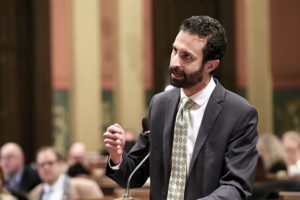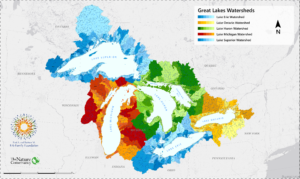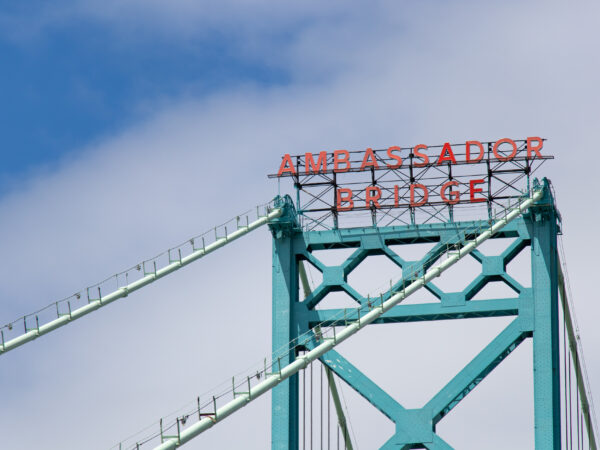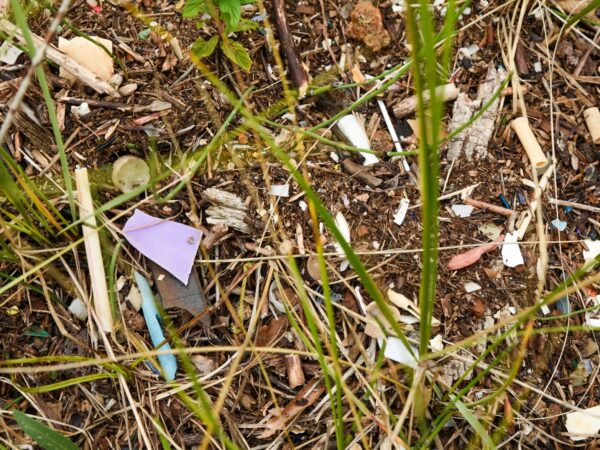Editor’s Note: This article was updated on Dec. 13, 2019, to correct a statement sent from a source. The final decision on the Nestle contested case will be made by EGLE Director Liesl Clark.
The long-running fight over water withdrawals in Michigan escalated on two fronts last week.
A Michigan appellate court ruled that Osceola Township had the authority to deny Nestle zoning approval for a pumping station that would transport water for its bottling operation.
The pumping station is needed to support increased withdrawals of water and production for the company’s Ice Mountain brand.
That was followed by the introduction of a bill by a state legislator to deny the shipment of bottled water from Michigan to locations outside of the Great Lakes watershed.
Two other bills introduced at the same time would bolster Michigan’s control over water.
The first would clarify that Michigan’s waters, including groundwater, are held in trust by the state for the people. The other would expand the Department of Natural Resources’ authority to manage water under its control.
“Erroneous” claim
In the zoning case, the lower court had ruled that Nestle’s water-bottling operation provided an “essential public service,” exempting it from local zoning laws.
The three-judge appellate court disagreed, calling the lower court’s conclusion “clearly erroneous.”
The appellate court also said “there is no legal or factual basis for considering the plaintiff’s (Nestle) commercial water bottling operation to be a public water supply under Michigan’s Safe Drinking Water Act.”
The backdrop for the case is Michigan’s 2018 decision to allow Nestle to increase water withdrawals from 250 to 400 gallons per minute. That decision is being contested by environmental groups and a decision by an administrative law judge is expected in 2020.

Nick Schroeck, Environmental Law Professor, University of Detroit Mercy, Photo by Great Lakes Now
The Osceola Township zoning issue is separate from the case contesting Nestle’s increased water withdrawals, but the appellate court decision could come into play in the contested withdrawals case, according to Nick Schroeck, an environmental law professor at the University of Detroit Mercy.
“The language about bottled water not being an ‘essential public service’ may be helpful to those challenging Nestle’s permit to pump more water,” Schroeck said.
Michigan’s Department of Environment, Great Lakes and Energy spokesperson Scott Dean said the department “has no official comment on an ongoing legal matter.”
The administrative law judge will issue a proposal for a decision and exceptions can be filed to EGLE Director Liesl Clark who will then issue a final decision and order, according to Dean.
In a statement, Nestle Waters said it was disappointed in the appeals court ruling and it would evaluate possible next steps in the legal process.
“Protect Michigan Water”
“We need to manage our (Michigan’s) water responsibly for the benefit of the people of our state, instead of allowing it to be diverted, polluted or exploited for corporate profits,” Rep. Yousef Rabhi said in a press release announcing the three bills proposed by state representatives.

State Rep. Yousef Rabhi speaks against HB 6553, Photo by housedems.com
Rabhi is a Democrat from Ann Arbor. All three water protection bills were introduced by Democrats.
The most prominent of the bills is the one designed to prohibit shipment of bottled water outside the Great Lakes basin. It was introduced by Rep. Rachel Hood from Grand Rapids.
Water diversions outside the basin are prohibited by the Great Lakes Compact with an exception for water in containers less than 5.7 gallons. Hood said the provision is a “loophole” in the Compact.
But the Compact provides that individual states can have tighter restrictions.
“To be very clear — just because the Great Lakes Compact allows the diversion of Great Lakes water in little plastic bottles does not mean that an individual state must also permit it,” said environmental law attorney Noah Hall in a 2018 interview with WDET Detroit.
The bottled water loophole was hotly debated in the run up to passage of the compact.
Former Michigan Rep. Bart Stupak feared the loophole would lead to commercialization of the Great Lakes.
“While the potential removal of millions of gallons of Great Lakes water in the form of bottled water is alarming, of much greater concern is a potential trade dispute between the U.S. and any multinational corporation or foreign government interested in diverting our water,” Stupak said in 2008.
Current Ohio Rep. Marcy Kaptur had similar concerns and also voted against the Compact which passed in Congress by a wide margin.
Passage of the proposed three bills will require the support of the Republican majority in the legislature and the signature of Gov. Gretchen Whitmer.
In her 2018 election campaign Whitmer articulated a comprehensive water agenda and on bottled water said “we need a way to control the siphoning of water for water bottling and my administration will work to see it done.”
Featured Image: Bottled Water, Photo by Steven Depolo via flickr.com cc 2.0
6 Comments
-
The legislators introducing these bills are incredibly ignorant, or they are banking on you to be ignorant in order to win your favor. Far, far more water is used and lost from Michigan in the production and manufacture of other products than what is shipped out in bottles. Water that is mixed with other things to make a product, or evaporated away in an industrial process is still water that should be protected, as necessary. Singling out bottled water versus all these other uses has no reasonable basis. And to restrict the diversion or loss of water for all the other uses would be catastrophic to our economy. Just plain dumb.
-
What products are you referring to where all this water leaves the watershed you are referring to?
-
Products that use water and cause water to leave the watershed: (1) All beverages are 85-99% water. Beer, wine, fruit juice, soft drinks, etc. are prominently manufactured in Michigan. (2) Agriculture. 90% of the water used in irrigation leaves the watershed as evaporation. Same for lawn and golf course irrigation. Irrigation is by far the greatest consumer of water in Michigan. (3) Steam produced for electric power generation or for cooling in industrial manufacturing processes.
-
-
-
There is currently a big stink in north Florida where Nestle is wanting to withdraw water from Ginnie Springs (a far lower volume source than the Great Lakes. It seems that Nestle is Grasping at straws.
-
where are the sources?
-
Great article. This is important for everyone to know.





